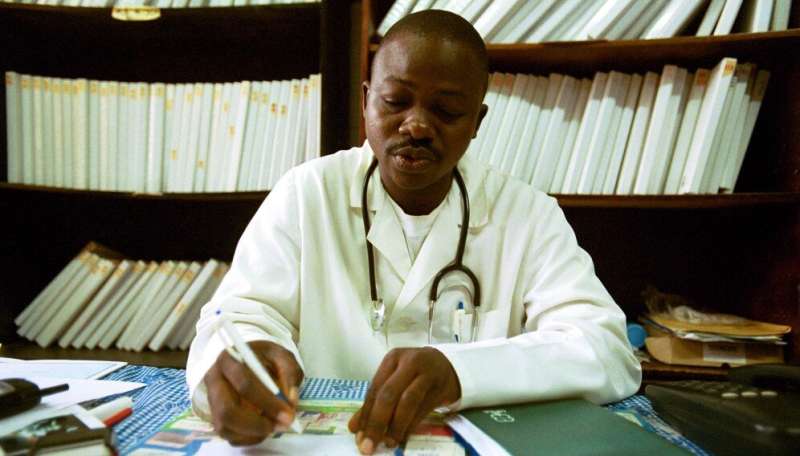

A critical shortfall in neurologists in Africa must be addressed in order to meet the health needs of patients with disorders that affect the brain, nerve and spinal cord, a study says.
The study published in the Journal of the Neurological Sciences found that ten African countries including Djibouti, Eritrea, Guinea Bissau, Lesotho, Liberia, and South Sudan do not have a neurologist—a medical specialist who managers disorders of nerves and the nervous system.
Yahya Naji, a co-author of the study and a resident doctor at the neurology department of Morocco’s University Hospital Mohamed VI, says new approaches are needed to swell the number of neurologists in Africa.
Telemedicine could be part of the solution for training African physicians as telecommunication infrastructure on the continent continues to expand, according to Naji.
“There are many solutions such as establishment [of] new centers of scientific research, seek funding from international organizations, collaboration with developed countries, increase the budget for research and medical formation,” Naji tells SciDev.Net.
According to a 2021 study, the WHO African region has only a median of 0.043 neurologists per 100,000 inhabitants—well below the WHO-recommended ratio of one per 100,000.
“The low numbers of neurologists signify that access to neurological care is too difficult, so all the neurological diseases will remain undiagnosed,” says Naji.
The shortfall of trained neurologists in Africa could lead to some patients seeking care from traditional healers, who may manage the disorders wrongly, putting patients’ lives at risk, adds Naji, who also works at the Marrakech Medical School of the University Cadi Ayyad in Morocco.
Neurological disorders are medical conditions that affect the brain, nerve and spinal cord, and include medical problems such as stroke, Parkinson’s disease, Alzheimer’s disease, epilepsy, speech and language disorders.
A separate study from 2014 showed that neurological disorders accounted for 20 percent of adult hospital medical admissions, more than five percent of deaths and about 14 percent of all disability in Sub-Saharan Africa.
To assess the number of neurologists in Africa, researchers used a questionnaire to collect data from experts in 50 African countries from March to December 2020, and analyzed WHO data for four countries that did not respond to the questionnaire.
“More than 17 countries (31.5 percent) have more than 11 neurologists while 27 countries (50 percent) have between one and ten neurologists,” the study says. “In some African countries, neurologists can be found only in [the] capitals (13 percent).
The analysis shows that only two African countries have more than 200 neurologists—Egypt (3,108) and Algeria (330)—and only six countries including Morocco, Nigeria, South Africa and Tunisia have 30 to 200 neurologists.
The researchers warn that the shortage of neurologists in Africa could last for decades, with the COVID-19 pandemic and strain on health care likely to make the situation even worse.
Rufus Olusola Akinyemi, deputy director at the Centre for Genomic and Precision Medicine of the University of Ibadan, Nigeria, says that the lack of neurologists in Africa is partly due to brain drain and lack of training programs.
Akinyemi, an expert studying degenerative brain disorders, tells SciDev.Net: “The study demonstrates the huge neurology human resource gap in Africa.
Coupled with the lack of high cost and poor access to neuroimaging facilities, correct neurological diagnosis may be limited and paving way for a lot of quackery in the space.”
He calls on African governments to invest in building human resource capacity by training more neurologists.
According to Akinyemi, the current shortfall is putting lives at risk. “In places where there are no neurologists, general physicians and medical officers with limited neurological expertise often stand in the gap to make neurological diagnosis,” he explains.
Source: Read Full Article